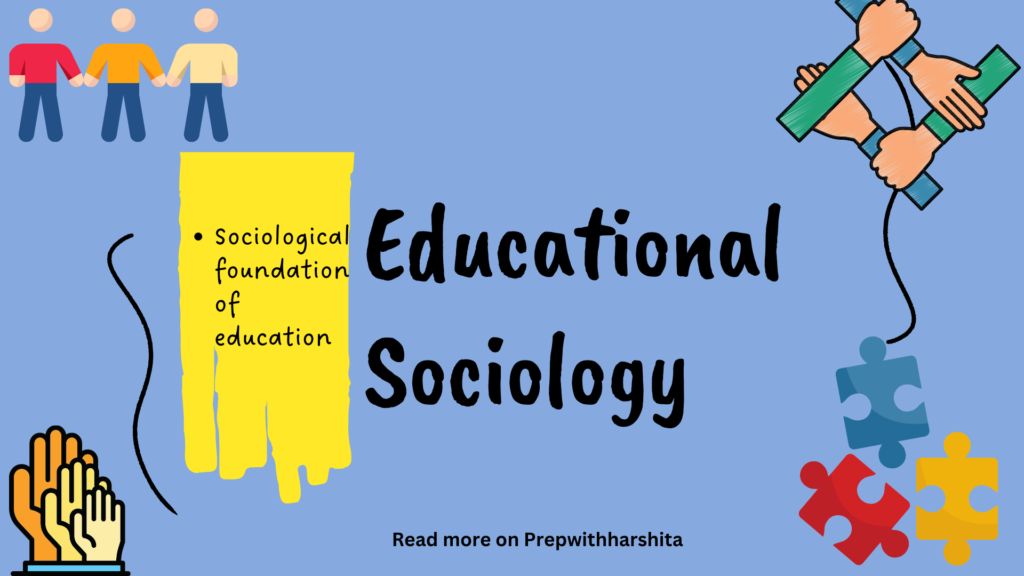Educational sociology is a branch of sociology that focuses on studying the social aspects of education systems, institutions, and processes. It examines the interactions between individuals, social groups, and larger social structures within educational contexts.
Key components and areas of study within educational sociology:
- Education as a Social Institution: Educational sociology views education as a social institution, meaning it analyzes how education functions within broader societal structures and systems. It examines the role of education in socializing individuals, reproducing social inequalities, and promoting social cohesion.
- Socialization and Education: Educational sociology investigates how education plays a crucial role in the socialization of individuals. It examines how educational institutions transmit knowledge, cultural values, norms, and social roles to students. This includes studying how educational settings shape individuals’ identities, beliefs, attitudes, and behaviors.
- Social Stratification and Inequality: Educational sociology analyzes the relationship between education and social stratification. It explores how educational systems contribute to the reproduction or transformation of social inequalities based on factors such as social class, race, ethnicity, gender, and other dimensions of social difference. It examines issues like educational access, educational attainment gaps, tracking, and the impact of socio-economic background on educational outcomes.
- Educational Policy and Reform: Educational sociology investigates educational policies and their effects on educational systems and societies. It examines the ways in which educational policies are formulated, implemented, and their implications for educational practices, equality, and social change. It critically analyzes the impact of policy initiatives, such as curriculum reforms, standardized testing, accountability measures, school funding, and educational governance structures.
- School Culture and Organization: Educational sociology studies the organizational and cultural aspects of schools. It explores how school structures, rules, and norms shape interactions between teachers, students, administrators, and other stakeholders. It examines factors that influence school climate, social dynamics, and the formation of student subcultures.
- Teacher-Student Relationships: Educational sociology investigates the dynamics of teacher-student relationships and their impact on educational outcomes. It explores how teacher-student interactions, classroom dynamics, and instructional practices influence student learning, motivation, and socialization. It examines factors such as teacher expectations, classroom climate, student engagement, and the role of power in educational settings.
- Education and Social Change: It examines the relationship between education and social change. It investigates how educational systems respond to and influence broader social, cultural, economic, and technological transformations. It analyzes the role of education in promoting social mobility, social integration, cultural innovation, and societal progress.
- Comparative and International Education: It also engages in comparative and international studies, comparing educational systems and practices across different societies and countries. It examines how educational policies, practices, and outcomes vary across contexts, considering factors such as cultural differences, political systems, and economic conditions.
Overall, educational sociology provides insights into the social dynamics of education, shedding light on the complex interplay between education, society, and individuals. By examining the social dimensions of education, it aims to inform educational policies, practices, and reforms that promote equity, social justice, and positive social change.
Also Read: Education and Cultural Change

Also Visit: Prep with Harshita

